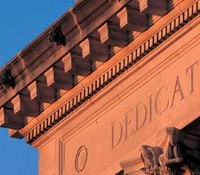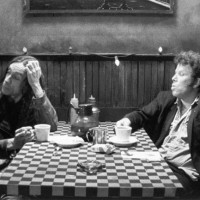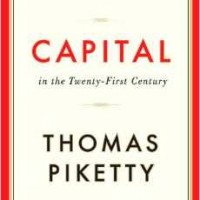I would say I'm not sure anyone will ever top this, but who can predict? Press Progress reports on a document produced by Kinder Morgan, on the beneficial economic impact of ... oil spills. The report reads: Words fail. H/T Charles Pierce @ESQPolitics … [Read more...]
Free pricing and access
Scotland has a policy of free university tuition. Today The Guardian reports: The research by Lucy Hunter Blackburn, a former civil servant with the Scottish government, estimates that free university tuition and the cuts in grants to lower-earning students means middle-class families and students will be £20m a year better. She estimates that the overall costs to lower-income families, including thousands of students at further education colleges, have gone up by at least £32m a year after the grant cuts forced them to take out larger … [Read more...]
Secrets of success
At Salon, Laura Miller writes about literary scholar Franco Moretti, and his efforts to analyze texts in order to discover what makes a success: Miller: One of the aspects of your work that’s the most counterintuitive at first glance is that you’re not that interested in studying literary masterpieces. You study literary works in large masses, regardless of whether they’re good or not. You’re not looking at “Middlemarch”; you’re looking at 7,000 mostly mediocre Victorian novels. Why is that interesting to you? Moretti: First of all, those … [Read more...]
Public support for the arts and the letter of the law
I was recently interviewed by Nancy Fowler of St. Louis Public radio on the recent controversies surrounding the ethics policies of the Zoo-Museum District. I won't repeat the whole story here, which is best covered in Ms Fowler's piece. This is a more general observation: Public and nonprofit arts organizations rely on public support. For public agencies, that comes in terms of voter support for earmarked tax funding programs, or through the budget allocations of local, state and federal government. Nonprofits rely on public support … [Read more...]
That and an app will get you a cup of coffee
Slate reports on the success of Cups, an app that allows people unlimited (sort of) cups of coffee from independent cafes in New York: For $45 a month, you can use the app to order as much tea and basic hot coffee as you want at any of Cups’ 28-and-counting member locations; for $85 you can add lattes, iced coffee, and other espresso-based beverages into the mix. And as part of the soft-launch, everything is free if you download the app. Everything. Until early next week. ... The genius of Cups is the notion that the best aspects of big chains … [Read more...]
The gender gap in wages
About six weeks ago the Times reported on museum directors' wages, finding something of a gender gap: Women run just a quarter of the biggest art museums in the United States and Canada, and they earn about a third less than their male counterparts, according to a report released on Friday by the Association of Art Museum Directors, a professional organization. The group examined salary data on the 217 members it had last year through the prism of gender, for the first time. The report noted strides made by women at small and midsize … [Read more...]
Capital, inequality, and investments in art
What are the effects of an increased concentration of wealth on the art market? Writing in the New York Times, Scott Reyburn looks for a link between the theories in most newsworthy economics book of the year, Thomas Piketty's Capital in the Twenty-First Century, and what we are seeing at the top end of the art market: Although art is one of the few subjects not mentioned in the index of Mr. Piketty’s 685-page opus, it is worth considering how the unprecedented amounts of money the wealthy have recently been spending on trophy artworks might … [Read more...]
What is big data for?
For a number of years I co-edited the Journal of Cultural Economics, and the core duty of the editor of a research journal is to guide through revision and publication papers that have findings new and interesting enough to advance our knowledge, and to turn away those papers that are either mistaken in their applications of theory and empirical work, or simply not all that relevant. The journal had to be selective - fewer than 20 percent of submissions were eventually published - and so a lot had to be turned away. What I found was that few of … [Read more...]
At the record store
I used to love going to record stores when I was a teenager. I couldn't buy much - a back-of-the-envelope calculation tells me it would have taken me 3 or 4 hours of work at my Saturday job at the Oasis Car Wash (it's still there!) to afford one LP - but it was enjoyable to browse, and make the occasional carefully selected purchase. When my friend Mike and I would make the drive from Vancouver to Seattle we would always make a point of going to the neighborhood around UW where there was a handful of used-record shops. So I am not completely … [Read more...]
What do we want from a Culture Secretary?
Sajid Javid has been appointed s the UK Secretary of State for Culture, Media and Sport. His backstory is here, and misgivings about the appointment of someone from the world of finance with no obvious affinities for the high arts are in the Guardian here and here. Blog neighbour Paul Levy writes: The only thing we really know about his interest in the arts is that he has defended ticket touts. We’ll see. I, of course, want a Culture Minister who is an opera queen, a collector of contemporary art, a theatre buff, a reader of fiction and … [Read more...]










